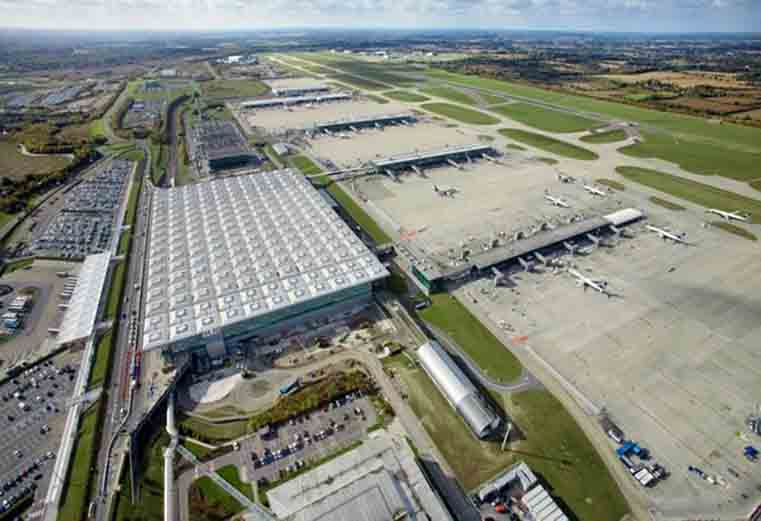The expansion of Britain’s airport infrastructure has become a key issue, as business leaders warn that delays threaten the country’s economic standing. With growing global competition, improving airport capacity is seen as essential to ensuring that the UK remains an attractive destination for trade, tourism, and investment. Business leaders are now urging the government to act swiftly to avoid long-term damage to the economy.
Business Leaders Demand Decisive Action
Top companies and industry bodies have voiced their concerns, warning that continued hesitation will hinder the UK’s ability to compete on the world stage. They argue that modernized and expanded airport infrastructure is essential to sustain trade relationships, especially in a post-Brexit economy. Efficient airport connections will allow smoother travel and cargo movement, reinforcing the UK’s status as a hub for international business.
The “Let Britain Fly” campaign, backed by several major business groups, emphasizes that without airport upgrades, the country risks falling behind competitors like Germany and France, which are actively expanding their aviation infrastructure. As London’s airports approach their capacity limits, businesses fear that congestion and delays will deter foreign investors and limit opportunities for growth.
Heathrow and Gatwick in the Spotlight
Heathrow and Gatwick airports have become focal points in the expansion debate. Heathrow’s proposed third runway promises to unlock significant economic benefits by increasing passenger and freight capacity. However, Gatwick’s plans for a second runway offer an alternative path, with proponents suggesting it could deliver similar benefits with fewer environmental consequences.
Both airports argue that expansion is essential to accommodate rising passenger numbers and meet the growing demand for global travel. Businesses supporting the expansions believe that new runways will boost tourism, create jobs, and enhance the UK’s connectivity to emerging markets, such as those in Asia and Latin America.
The Impact of Delays on Global Trade
Airport delays not only affect tourism but also have a significant impact on trade. Airports serve as critical gateways for imports and exports, and inefficiencies can lead to increased costs and missed business opportunities. The British International Freight Association (BIFA) has warned that without expanded capacity, supply chain disruptions will become more frequent, undermining the UK’s role as a logistics hub.
Industry leaders caution that businesses may divert investments to countries with better infrastructure if the government continues to delay decisions. This would not only affect the aviation sector but also other industries reliant on efficient transportation networks.
Balancing Economic Growth and Environmental Concerns
While businesses push for rapid expansion, environmental groups have expressed concerns about the impact of increased air traffic on emissions and noise pollution. They argue that any expansion must align with the UK’s commitment to achieving net-zero carbon emissions. Striking a balance between economic growth and environmental sustainability remains a significant challenge.
Airport authorities, including Heathrow, have pledged to implement greener technologies and carbon offset programs to address these concerns. Nevertheless, the debate highlights the complex trade-offs involved in large-scale infrastructure projects.
The Road Ahead for Airport Expansion
With pressure mounting from the business community, the government faces a critical decision on the future of airport expansion. Industry leaders are urging policymakers to prioritize long-term economic growth by making decisive investments in aviation infrastructure. As the global economy evolves, maintaining world-class airport facilities will be essential for the UK to remain competitive in an increasingly interconnected world.




